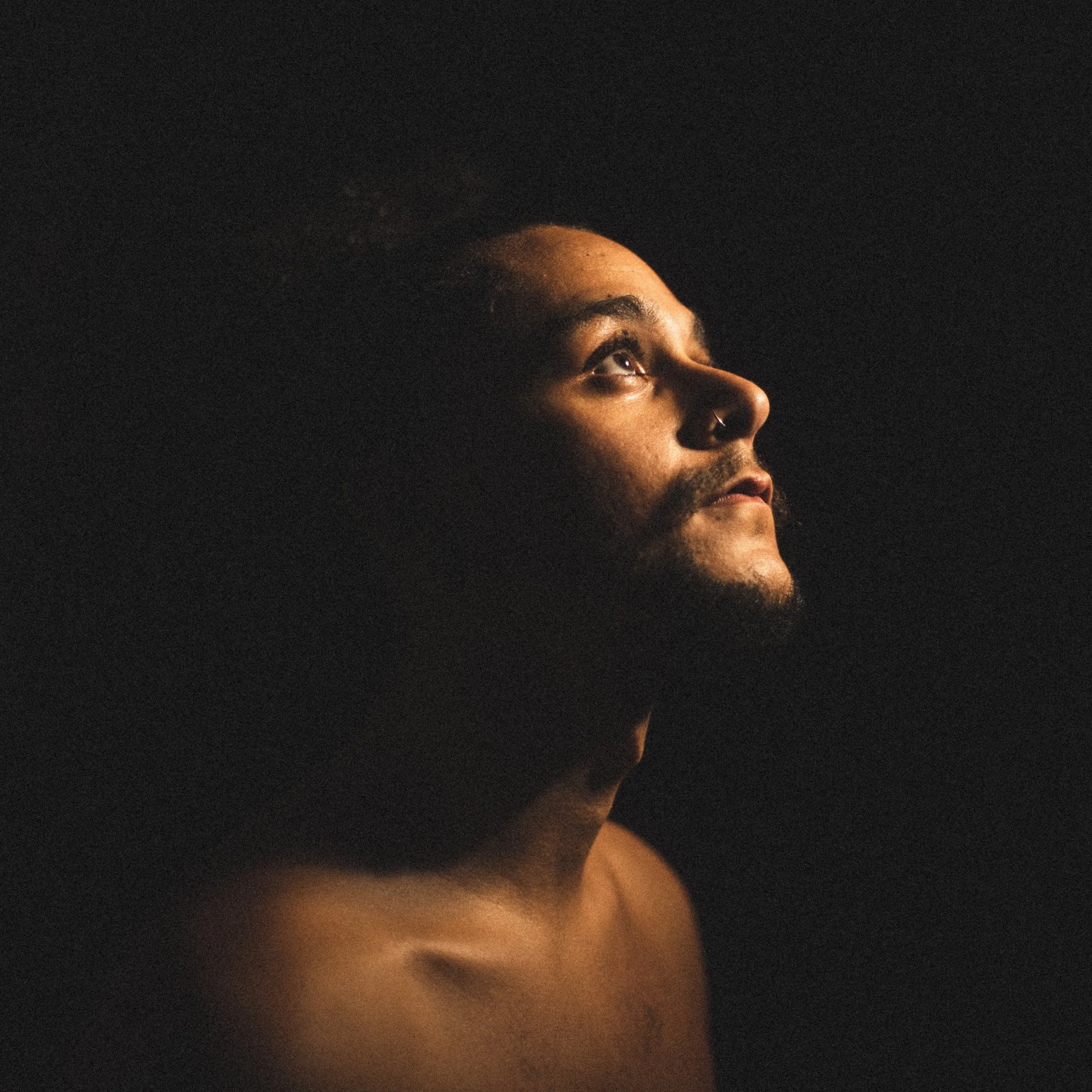Written by: Oliver Heffron
Franco Colon is an artist-driven by existential questions like What is the universe? How does it work? What is my place in it? Working towards an answer for the latter, Brooklyn-based singer/songwriter and producer has been working these questions out through his music.
Carving out his style in contemporary pop, Colon incorporates R&B, rap, alternative, and salsa influences around lyrics that question the human condition. The components meld into a unique sound that’s spontaneous and magnetic to the soul.
In recognition of his work, Franco Colon was adopted into a new art collective named Project Feel, helping take his creative vision to new heights. His new entirely self-produced album, My Painfully Sweet Paradox, presents diverse sounds and influences, orbiting the central theme of the struggle to understand and cope with one’s own humanity.
Inspired to take the visual accompaniment of the project to new heights, Franco Colon teamed up with longtime creative collaborators Hector Sanchez and Brandon Jimenez to film a feature-length accompaniment film–with each song on the tracklist getting its own cinematic moment within one cohesive narrative.
Starring Franco in a wintery, isolated rural house with only a mannequin and TV to keep him company, the film depicts someone breaking the cycle of escaping into the corners of one’s mind through stunning cinematography and a powerful performance from Colon.
Franco Colon sat down with Nuance for a virtual interview to talk about his creative upbringing, inspiration for My Painfully Sweet Paradox, and meaning behind the accompanying feature-length film:
Photo Courtesy of Trish Mollo
Growing up in Orlando, Florida, Franco Colon was already interested in performing, getting serious about his passion in high school: “I joined Theater, and I did several competitions with thespians in high school.” Colon continued exploring the stage in college, writing and acting in plays and student films.” At 21, he moved to New York to focus on acting and was accepted to The Actor’s Studio.
After training for a year at the prestigious theatrical institution, Colon describes stumbling into a passion for music: “I started writing music kind of on a whim, just because I loved music and I thought why not explore this avenue of art? So, I did. I downloaded GarageBand on my laptop and just started writing from there, learning how to produce. I had some really cool mentors who taught me how to produce and do my own thing–all from YouTube University.”
The product of two years of musical exploration and personal turmoil, My Painfully Sweet Paradox swings from somber confessions to hip-shaking groves bound by a central tension:
“Over the course of the last few years, I was kind of exploring my sound and, and exploring like what it was that I wanted to express. I was going through some difficult feelings and this was just a way for me to articulate that in a way that made sense to me. And as you know, I think somewhere around last year, I started to compile the songs together. And I was like, Oh, I think that there’s like a through line here. And I think that there’s symmetry here and I think that these songs deserve to kind of be together and tell us a story about how I felt at this time.”
The dominant feeling Colon remembers dealing with is a struggle with self-reflection, an existential dread stemming from the friction deep inside: “I think that in many ways the film emulates this sort of confusion. I think that in a lot of ways I was experiencing that time: this problem with introspection. The house is the place where I go to deal with this friction inside of myself and these different parts of myself.” He explains how he took this central image and built out the visual metaphor to depict what was going on every day inside his mind:
Photo Courtesy of Trish Mollo
“That kind of turbulence, that tension, that disturbance that’s happening inside of the house, that’s what it feels like when I was trying to live my everyday life: have conversations; go to work; be a functional human being. I was like fighting all of these things inside it was so loud, it was so tight, inside of like inside of this metaphorical house in the middle of nowhere. In a lot of ways disrupted my ability to be present with the people that I loved in my everyday life.”
Explaining the concept behind his co-star, a self-moving mannequin with a fashion sense, Colon describes it as representing the unreachable corners of his mind that nonetheless exist:
“There this holiness about her, but there’s also this eeriness; this mystery about her. I think in a lot of ways she represents the parts of me that I want to learn about, that are inside of me that I don’t know about yet but very much exist and almost have this essence inside of the house. Besides the door, the mannequin is like the only thing that moves by itself without me moving it. I think that kind of says something about that part of me that exists, but is more intuitive and I don’t necessarily think about–it’s not necessarily like under my control. Kind of like breathing when I’m not thinking about it.”
While the mannequin depicts the unfamiliar, the cozy old TV represents a familiar, unhealthy perspective on self-reflection that Colon was trying to work through:
“The TV was something that was already familiar to me. It’s something that I already knew was a part of me that I had an uncomfortable relationship with. This part of me wanted me to be better, it wanted me to not feel this way, it wanted me to be present, but didn’t know how to properly love me. It was an old way of kind of being, an old way of introspecting.”
At the film’s climax, Colon destroys the TV triumphantly, only to melt into grief on the floor. He describes that moment as the pivotal scene because it reflects his personal growth:
“It’s the first time that I come to this place and I decided to break this TV. This TV has distracted me for so long over and over again. But this one time I decided no, I can’t take this anymore. I break it and right after that you see the scene of me grieving. It’s because like that theme, although it was not a healthy relationship, it was something that I loved.”
After an initial premiere in Brooklyn for fans and family, My Painfully Sweet Paradox just premiered on Youtube. With a passion for performance and a knack for expressing complex interior concepts, Franco Colon is an artist brave enough to face the tough questions of everyday humanity.


